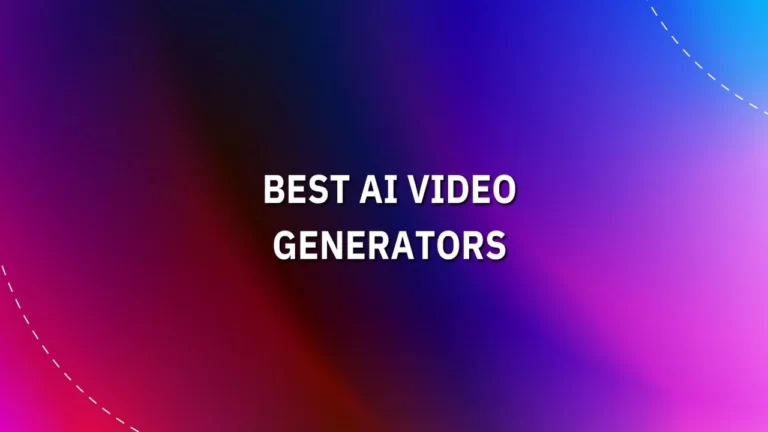AI Business Ideas: Unleashing the Future of Innovation
Introduction to AI Business Ideas
The advent of Artificial Intelligence (AI) has ushered in a new era of innovation and efficiency across various sectors. Today, AI business ideas are not just transforming operations; they’re setting a new benchmark for how businesses engage with customers, streamline processes, and leverage data for strategic decisions. This article explores the vast landscape of AI business opportunities, guiding entrepreneurs towards the future of business innovation.
AI-Driven Customer Service Solutions
Chatbots and Virtual Assistants: The integration of AI in customer service through chatbots and virtual assistants has revolutionized the way businesses interact with customers. Offering 24/7 support, these AI solutions can handle queries, resolve issues, and ensure customer satisfaction without human intervention, making them a lucrative business avenue.
Personalized Customer Experiences: AI business ideas technologies enable businesses to tailor customer experiences by analyzing data and predicting preferences. This personalization not only enhances customer engagement but also opens avenues for businesses to upsell and cross-sell effectively.
AI in Marketing and Sales
Predictive Analytics for Sales: Leveraging AI to predict future sales trends based on historical data can significantly improve inventory management and marketing strategies. This insight allows businesses to anticipate demand, optimize stock levels, and tailor marketing efforts.
Content Generation and SEO: AI tools that generate content and optimize for search engines are transforming the marketing landscape. These tools help create engaging content that ranks well on search engines, driving traffic and increasing visibility for businesses.
Personalized Marketing: AI’s ability to segment audiences and tailor marketing messages makes it an invaluable tool for businesses looking to enhance their marketing strategies. This customization leads to higher engagement rates and ROI on marketing campaigns.

AI for Business Process Automation
Streamlining Operations: AI can automate routine tasks, freeing up human resources for more strategic work. This automation extends across various functions, including finance, HR, and operations, making businesses more efficient and cost-effective.
Enhancing Efficiency with RPA: Robotic Process Automation (RPA) powered by AI can perform repetitive tasks quickly and accurately. From data entry to processing transactions, RPA improves operational efficiency and reduces errors.
AI in Financial Services
Fraud Detection: AI systems can analyze patterns and detect fraudulent activities in real-time, protecting businesses and consumers from financial fraud.
Algorithmic Trading: AI algorithms can execute trades at optimal times based on market analysis, improving profitability for investment firms and traders.
Personalized Financial Advice: AI-powered financial advisors can provide personalized investment advice based on an individual’s financial history and goals, democratizing access to financial planning.
AI in Healthcare Solutions
Diagnostic Tools: AI algorithms can assist in diagnosing diseases by analyzing medical images and patient data, improving accuracy and speed in medical diagnosis.
Personalized Treatment Plans: AI can analyze data to recommend personalized treatment plans for patients, taking into account their medical history and genetic information.
Virtual Health Assistants: AI-driven virtual health assistants can provide health information, remind patients about medications, and monitor health conditions, offering support and convenience to patients and healthcare providers.
AI in Supply Chain and Logistics
Predictive Analytics for Supply Chain: AI can forecast supply chain disruptions and demand fluctuations, allowing businesses to adapt their strategies and maintain efficiency.
Autonomous Vehicles in Logistics: The use of autonomous vehicles and drones for delivery can reduce costs and improve the speed and reliability of shipments, revolutionizing logistics.
AI in Human Resources
Candidate Screening: AI tools can streamline the recruitment process by quickly screening candidates based on criteria, ensuring a more efficient hiring process.
Employee Engagement Tools: AI-driven platforms can analyze employee feedback and performance data to enhance engagement and productivity within organizations.

AI-Enabled Security Solutions
Threat Detection and Response: AI can identify and respond to security threats in real-time, enhancing the protection of data and digital assets.
AI in Cybersecurity: The use of AI in cybersecurity helps in predicting and preventing cyber attacks, safeguarding businesses from potential threats.
AI for Content Creation and Media
Automated Journalism: AI can generate news articles and reports, providing timely and cost-effective content for media outlets.
AI in Film Production: AI technologies can assist in various stages of film production, from scriptwriting to post-production, enhancing creativity and efficiency.
AI-Generated Music: AI can compose music, offering new opportunities for artists and the music industry to explore innovative soundscapes.
AI for Environmental and Sustainability
Climate Monitoring: AI can analyze environmental data to monitor climate change and predict weather patterns, aiding in disaster preparedness and response.
Energy Optimization: AI solutions can optimize energy usage in buildings and industrial processes, contributing to sustainability efforts and cost savings.

AI in Education and Training
Personalized Learning Paths: AI can tailor educational content to the needs and pace of individual learners, enhancing the effectiveness of education and training programs.
Virtual Tutors and Simulations: AI-driven virtual tutors and simulations offer interactive learning experiences, making education more engaging and accessible.
AI in Real Estate
Property Valuation Tools: AI algorithms can analyze market data to provide accurate property valuations, aiding in the buying and selling process.
Virtual Property Tours: AI-powered virtual tours allow potential buyers to explore properties remotely, enhancing the real estate buying experience.
Emerging AI Technologies
Quantum Computing and AI: The integration of quantum computing with AI promises to unlock new potentials in processing speed and problem-solving capabilities.
AI in Blockchain Technology: AI can enhance the security and efficiency of blockchain applications, offering new opportunities in decentralized technologies.
Challenges and Ethical Considerations
Data Privacy and Security: As AI technologies rely heavily on data, ensuring the privacy and security of this data is paramount for businesses and consumers.
Ethical AI Use: The ethical use of AI, including considerations around bias and accountability, is critical to maintaining trust and integrity in AI applications.
Funding AI Startups
Venture Capital in AI: The growing interest in AI has led to increased venture capital investment in AI startups, providing the necessary funds to drive innovation.
Government Grants and Subsidies: Governments worldwide are offering grants and subsidies to support AI research and development, recognizing its potential impact on the economy and society.
Future Trends in AI Business
The Evolution of AI Technologies: As AI technologies continue to evolve, they will offer new opportunities and challenges for businesses across industries.
AI’s Impact on Future Job Markets: The integration of AI into various sectors will transform job markets, creating new roles while automating others. Preparing for this shift is essential for businesses and workers alike.
Conclusion: Seizing AI Opportunities
AI business ideas hold the key to unlocking unprecedented levels of efficiency, innovation, and growth across industries. By embracing AI, entrepreneurs and businesses can not only streamline their operations but also create value in new and exciting ways. The future of business lies in leveraging AI to its fullest potential, and the time to act is now.
FAQs
How can AI improve customer service?
AI improves customer service by providing 24/7 support through chatbots and virtual assistants, handling queries efficiently, and personalizing customer interactions based on data analysis.
What are the benefits of AI in marketing?
AI in marketing offers several benefits, including predictive analytics for sales forecasting, content generation for SEO, and personalized marketing strategies that lead to higher engagement and ROI.
Can AI automate business processes?
Yes, AI can automate a wide range of business processes, from routine administrative tasks to complex operational workflows, enhancing efficiency and reducing costs.
How does AI contribute to healthcare?
AI contributes to healthcare by assisting in disease diagnosis, recommending personalized treatment plans, and offering virtual health assistant services to monitor and support patients’ health.
What role does AI play in cybersecurity?
AI plays a crucial role in cybersecurity by detecting and responding to threats in real-time, predicting potential cyber attacks, and enhancing the overall security posture of businesses.
How can startups secure funding for AI proje
Startups can secure funding for AI projects through venture capital investments, government grants, and subsidies designed to support innovation in AI technologies.
Conclusion
Exploring AI business ideas opens up a world of opportunities for entrepreneurs and businesses willing to innovate and adapt. From enhancing customer experiences to revolutionizing healthcare and beyond, AI is poised to transform the way we live, work, and interact. By understanding the potential of AI and strategically integrating it into business models, companies can achieve unprecedented growth and success in the digital age.








